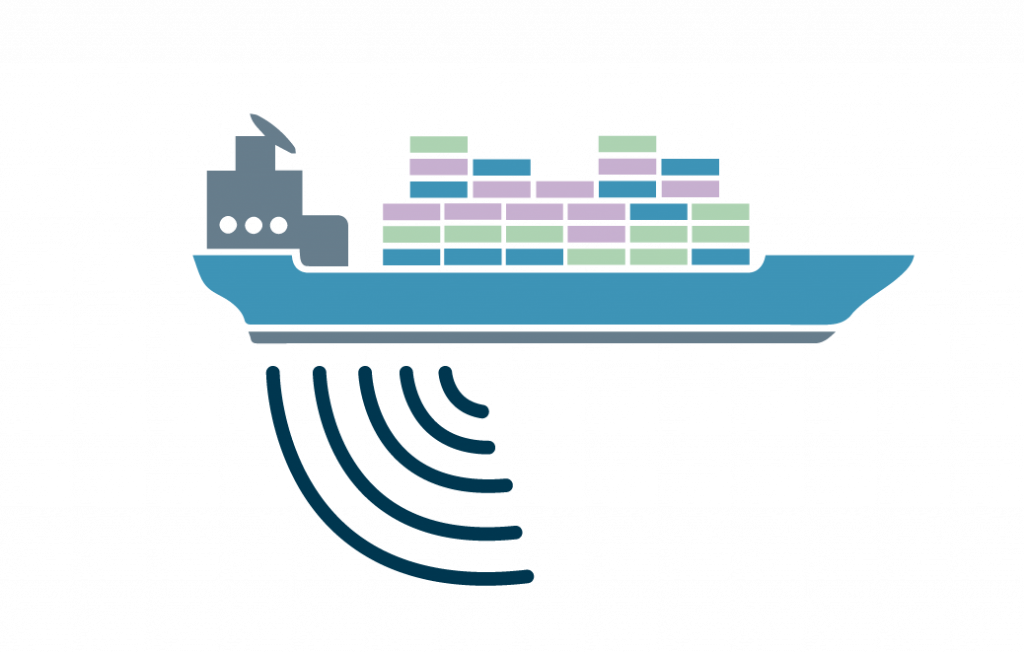NGOs Welcome Initial Steps But Demand Greater Urgency On Reducing Underwater Noise Pollution and its effect On Marine Life

London, 21 January 2022:- As a meeting of the International Maritime Organization’s Sub-Committee on Ship Design and Construction (SDC 8) closed today in London, the Clean Arctic Alliance welcomed the meeting’s recognition that the non-mandatory nature of the current eight-year-old IMO guidelines on underwater noise pollution from ships is a key barrier to their implementation, and called on the IMO to develop mandatory measures to reduce the impact of underwater noise on marine wildlife, including whales, dolphins and fish [1].
“While the Clean Arctic Alliance is pleased that SDC 8 has identified the non-mandatory nature of the current guidelines on underwater noise as a key barrier to their implementation, the IMO must now urgently develop global mandatory measures to reduce the impacts of underwater noise pollution on the health of marine wildlife, including whales, dolphins and fish”, said Dr Sian Prior, Lead Advisor to the Clean Arctic Alliance.
“The non-mandatory nature of the current guidelines, which have not been updated since 2014, also appear to have led to a de-prioritisation by the shipping sector – and this has resulted in increasing noise levels in the ocean, including the Arctic, where underwater noise from ships has a much greater impact”, she added.
““It is likely that there will be some solutions which will have co-benefits with other areas of IMO’s regulatory responsibilities, in particular efforts to address climate emissions, but only if the rules are stringent enough to trigger the necessary changes in behaviour needed to reduce emissions and underwater noise,” said Sarah Bobbe, Arctic Program Manager of Ocean Conservancy.
“The inclusion of the need to develop numerical targets and thresholds in the workplan put in place during the meeting is important. This workplan must now be delivered, as a matter of urgency”, said Bobbe.
Ultimately, the IMO must agree to the development of mandatory measures so that the overall failure to reduce underwater noise is addressed globally,” concluded Dr Prior. “The meeting also recognised that in addition to global measures, even more stringent regional measures to reduce acoustic pollution from vessels in areas such as the Arctic will be necessary. The Arctic is a special case for underwater noise because of how sound propagates over long distances and how it can impact marine life and Inuit communities who depend on wildlife and the sea for livelihoods and culture.”
_
Notes:
[1] MEPC.1/Circ.833
7 April 2014
Guidelines For The Reduction Of Underwater Noise From Commercial
Shipping To Address Adverse Impacts On Marine Life
https://cleanarctic.org/wp-content/uploads/2022/01/MEPC.1-Circ-883-Noise-Guidelines-April-2014.pdf
MEPC 75/14: Proposal for a new output concerning a review of the 2014 Guidelines for the reduction of underwater noise from commercial shipping to address adverse impacts
on marine life (MEPC.1/Circ.833) and identification of next steps
Submitted by Australia, Canada and United States
https://cleanarctic.org/wp-content/uploads/2022/01/MEPC-75-14-Proposal-for-a-new-output-concerning-a-review-of-the-2014-G….pdf
MEPC 75/14 submitted by Australia, Canada, and the United States. Proposal for a new output concerning a review of the 2014 Guidelines for the reduction of underwater noise from commercial shipping to address adverse impacts on marine life (MEPC.1/Circ.833) and identification of next steps. 27th December 2020.
“17: In order to understand the uptake and awareness of the 2014 Guidelines by the international shipping community, a steering committee comprised of World Wildlife Fund Canada (WWF), Chamber of Shipping of America and Transport Canada oversaw a study by Environics Research and the World Maritime University in 2019. Though the study had a small sample size, a general awareness of the 2014 Guidelines among participants was found along with an indication that the 2014 Guidelines were not being used widely to make changes to ship design to reduce underwater vessel noise. The non-regulatory/non-mandatory nature of the tool, a lack of measurement specification and data demonstrating the impacts of underwater vessel noise, and scepticism about the feasibility of changes were identified as the key barriers to the uptake of the 2014 Guidelines and consideration of mitigation technologies for vessels. The needs to build awareness of the issue, invest in measurement, initiate trials of new technology, disseminate research on impacts and introduce regulatory/financial incentives were identified as possible solutions. “
https://cleanarctic.org/wp-content/uploads/2022/01/Benchmarking-Study-on-URN-IMO-Guidelines-Report-Final.pdf
Documents submitted to SDC 8 by Countries and NGOs
SDC 8-14-1 – Scoping document on Underwater Noise from Commercial Shipping (Canada, New Zealand, United Kingdom and the United States)
https://cleanarctic.org/wp-content/uploads/2022/01/SDC-8-14-1-Scoping-document-on-Underwater-Noise-from-Commercial-Shipping-Canada-New-Zealand-Unit….pdf
SDC 8-14-4 – Provisional Work plan (Canada)
https://cleanarctic.org/wp-content/uploads/2022/01/SDC-8-14-4-Provisional-Work-plan-Canada.pdf
SDC 8-14-6 – Comments on documents SDC 814 and SDC 8141 (FOEI, WWF, IFAW, Pacific Environment and CSC)
https://cleanarctic.org/wp-content/uploads/2022/01/SDC-8-14-6-Comments-on-documents-SDC-814-and-SDC-8141-FOEI-WWF-IFAW-Pacific….pdf
SDC 8-14-9 – Comments on SDC 8141 and text proposal for review of the 2014 Guidelines (Austria, Belgium, Bulgaria, Croatia, Cyprus, Czech Republic, Denmark,
Estonia, Finland, France, Germany, Greece, Hungary, Ireland, Italy, Latvia, Lithuania,
Luxembourg, Malta, Netherlands, Poland, Portugal, Romania, Slovakia, Slovenia,
Spain, Sweden and European Commission)
https://cleanarctic.org/wp-content/uploads/2022/01/SDC-8-14-9-Comments-on-SDC-8141-and-text-proposal-for-review-of-the-2014-Guidelines-Austria-Belgium-Bulgari….pdf
About the Clean Arctic Alliance
Made up of 21 not-for-profit organisations, the Clean Arctic Alliance campaigns to persuade governments to take action to protect the Arctic, its wildlife and its people.
Members include: 90 North Unit, The Altai Project, Alaska Wilderness League, Bellona, Clean Air Task Force, Green Transition Denmark, Ecology and Development Foundation ECODES, Environmental Investigation Agency, Friends of the Earth US, Global Choices, Greenpeace, Iceland Nature Conservation Association, International Cryosphere Climate Initiative, Nature And Biodiversity Conservation Union, Ocean Conservancy, Pacific Environment, Seas At Risk, Surfrider Foundation Europe, Stand.Earth, Transport & Environment and WWF.
More more information visit https://www.cleanarctic.org/
Twitter: https://twitter.com/CleanArctic





